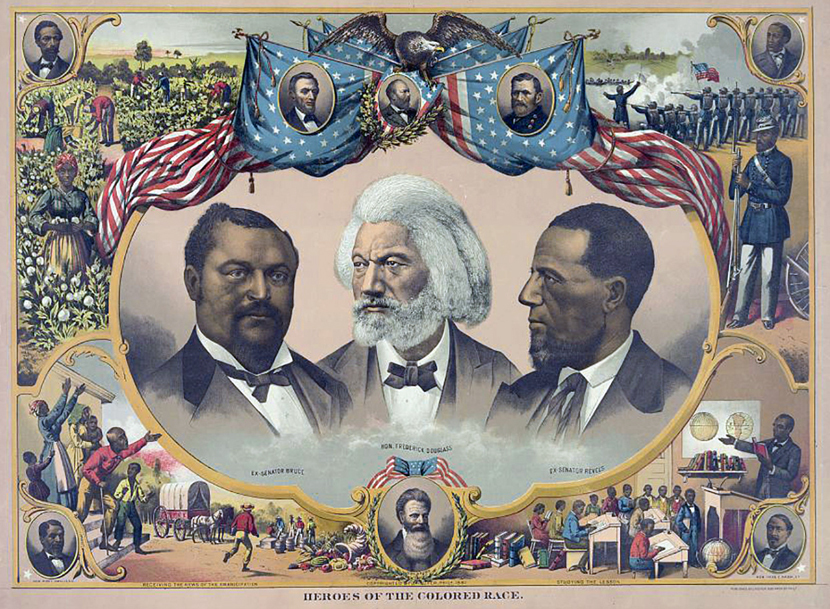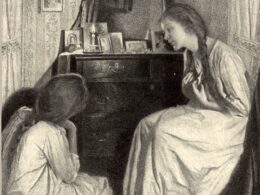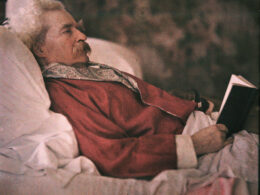Frederick Douglass (1818–1895)
From Reconstruction: Voices from America’s First Great Struggle for Racial Equality

Today, Valentine’s Day, is the 200th birthday of Frederick Douglass.
Like many slaves, Frederick Augustus Washington Bailey wasn’t sure when he was born and by the time he wrote his first memoir in 1845 he figured he was born in 1817. Scholars have since shown that he must have been born in February 1818—although you’ll still find many reference works and history books that give 1817 as the year of his birth.
How “Fred Bailey” became “Frederick Douglass” is itself a convoluted story. When Fred escaped from Baltimore in 1838, he changed his last name to Stanley, and changed it again to Johnson when he arrived in New York. He then went to New Bedford, where the white couple who sheltered him were the Johnsons, and he learned from them that so many escaped slaves had taken the name that it had become a telltale sign to slave catchers—and an exasperating difficulty in the Johnsons’ efforts to hide fugitives. During Fred’s stay at their home, Robert Johnson was reading Walter Scott’s “The Lady of the Lake” and suggested the name Douglass, after the poem’s heroic Scottish fugitive James Douglas. Thus was born Frederick Douglass.
Within twenty years Douglass was the one of the most famous men in the United States—author of two widely read memoirs and an orator who commanded among the highest speaking fees in the nation. Toward the end of the Civil War he delivered a speech, “What the Black Man Wants,” discussing what the nation should do to help the newly freed slaves. In honor of Frederick Douglass’s bicentennial, we present it in full as our Story of the Week selection.
Read “What the Black Man Wants” by Frederick Douglass
Image, above: “Heroes of the colored race,” chromolithograph print published by J. Hoover (Philadelphia, 1881–1883). Frederick Douglass is flanked by U.S. Senators Blanche Kelso Bruce and Hiram Rhodes Revels and surrounded by scenes of African American life and portraits of John Roy Lynch, Abraham Lincoln, James A. Garfield, Ulysses S. Grant, Joseph H. Rainey, Charles E. Nash, John Brown, and Robert Smalls. Revels was the first African American elected to the Senate, to fill a partial term in 1871; Bruce was the first African American to serve a full term, beginning in 1875; both men represented Mississippi. Image courtesy of Library of Congress Prints and Photographs Division.



